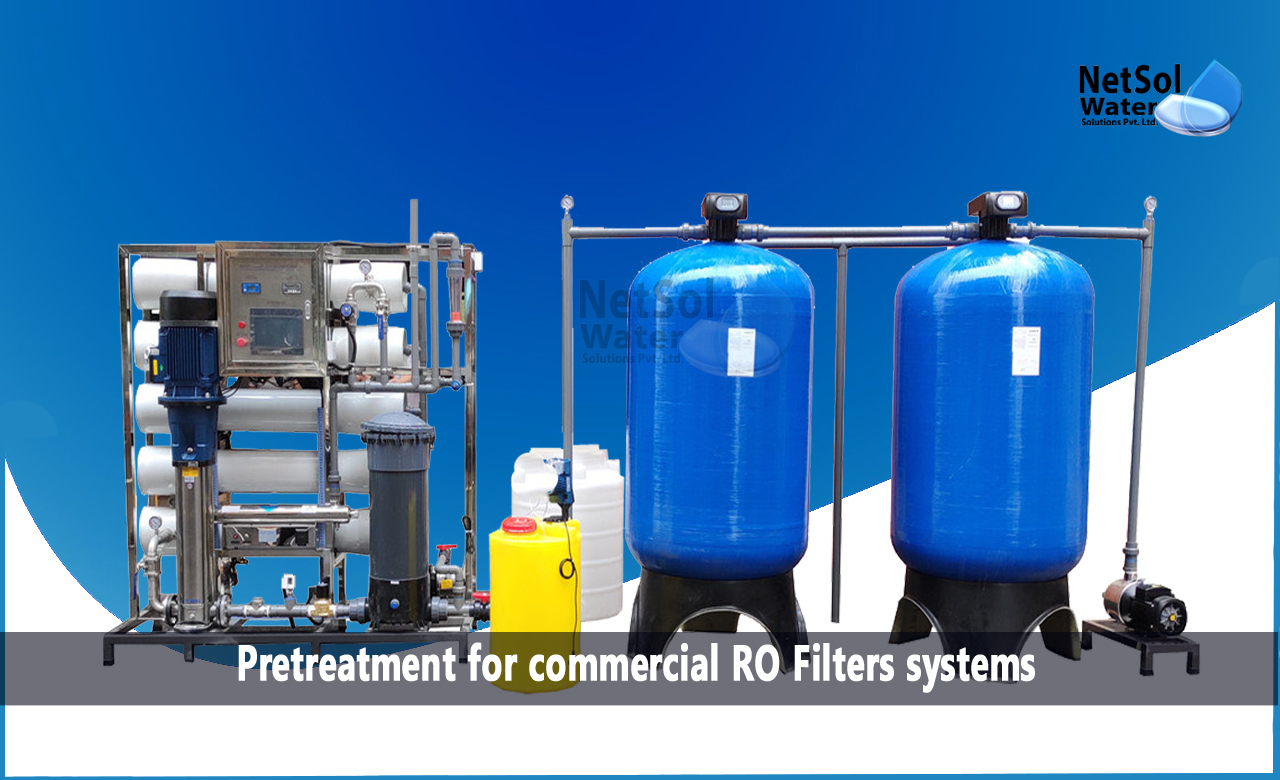Why do RO filters require pre-treatment?
Pre-treatment is necessary for commercial reverse osmosis (RO) filters to protect the RO membrane from fouling and scaling. The RO membrane is a critical component of the system that filters out dissolved solids, bacteria, and other contaminants from the water. However, the membrane is also vulnerable to fouling and scaling, which can reduce its effectiveness and lifespan. Fouling occurs when particles, bacteria, and other contaminants accumulate on the surface of the membrane, while scaling occurs when dissolved minerals in the water crystallize and form a hard layer on the membrane surface.
Pre-treatment methods, such as sediment filtration, carbon filtration, water softening, anti-scalant injection, and pH adjustment, are designed to remove or control these contaminants before they reach the RO membrane. For example, sediment filtration removes large particles that could clog the membrane, while carbon filtration removes chlorine and organic compounds that could damage the membrane. Water softening removes calcium and magnesium ions that could cause scaling, and anti-scalant injection inhibits the formation of scale crystals. pH adjustment can optimize the performance of the membrane and prevent damage.
What is the Pretreatment for commercial RO Filters systems?
Commercial reverse osmosis (RO) filter systems require pre-treatment to protect the membranes from fouling and scaling, which can reduce their effectiveness and lifespan. Here are some common pre-treatment methods used for commercial RO filters:
1. Sediment filtration: This involves the use of a sediment filter to remove large particles, such as sand and silt, from the water before it enters the RO system. Sediment filters are typically made of polypropylene and can trap particles down to 5 microns in size.
2. Carbon filtration: Carbon filters are used to remove chlorine, organic compounds, and other contaminants that can damage the RO membrane. Carbon filters are typically made of activated carbon and can be either granular or block type.
3. Water softening: If the water is hard (contains high levels of calcium and magnesium), a water softener may be used to remove these minerals. Hard water can cause scaling on the RO membrane, reducing its effectiveness and lifespan.
4. Anti-scalant injection: An anti-scalant chemical may be injected into the water before it enters the RO system to prevent scaling on the membrane. Anti-scalants work by inhibiting the formation of scale crystals and keeping them in suspension, so they can be removed by the RO system.
5. pH adjustment: The pH of the water may need to be adjusted to optimize the performance of the RO membrane. pH adjustment may involve the addition of an acid or base to the water to bring it to the desired pH range.
RO Pretreatment Applications:
Pretreatment is an important step in the process of reverse osmosis (RO) filtration. It involves the removal of contaminants and impurities that can negatively affect the performance and lifespan of RO filters. The main applications of pretreatment in RO filters include:
· Removal of suspended solids: Suspended solids such as sand, silt, and clay can clog the RO membrane and reduce its effectiveness. Pretreatment methods such as sedimentation, filtration, and coagulation can remove these solids and prevent them from entering the RO system.
· Reduction of organic matter: Organic matter such as bacteria, viruses, and dissolved organic compounds can also foul the RO membrane and reduce its performance. Pretreatment methods such as activated carbon adsorption, oxidation, and chlorination can remove or reduce these contaminants.
· Control of scaling and fouling: Scaling and fouling are caused by the buildup of mineral deposits on the RO membrane. Pretreatment methods such as antiscalant dosing, pH adjustment, and softening can prevent these deposits from forming and protect the membrane.
· Maintenance of pH and oxidation-reduction potential (ORP): Maintaining the proper pH and ORP levels is important for preventing bacterial growth and ensuring effective disinfection. Pretreatment methods such as pH adjustment, oxidation, and ultraviolet (UV) sterilization can help to maintain these levels.
Do you need an advice or assistance on selecting the best water and waste water treatment unit? We have solutions for all your problems!
Let us now your problem, our experts will make sure that it goes away.
For an assistance or related query,
Call on +91-965-060-8473
Or write us at enquiry@netsolwater.com



